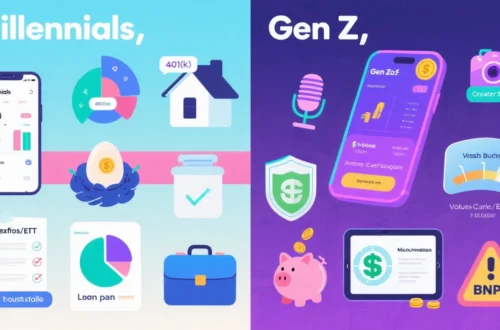Retirement is a goal many aspire to, yet few are fully prepared for. In today’s volatile economic landscape, planning for a secure and comfortable retirement has become more challenging than ever. With fluctuating markets, inflation, and potential policy changes, it’s crucial to adapt and take proactive steps to ensure financial security in your golden years.
Why Retirement Planning is More Critical Than Ever
Economic uncertainty affects nearly every aspect of financial planning. According to recent studies, the median retirement savings for Americans aged 55 to 64 is just $88,000—far below what is needed to sustain even a modest lifestyle in retirement. Many are left relying heavily on Social Security benefits, which may not cover basic expenses. This situation is compounded by rising healthcare costs, longer life expectancies, and inflation, all of which threaten the stability of retirement funds.
Key Strategies to Secure Your Retirement
To navigate these challenges, implementing a comprehensive plan is essential. Below are proven strategies to enhance your preparedness for retirement amidst economic uncertainty:
1. Start Saving Early and Consistently
Time is one of the most valuable assets in retirement planning. The earlier you begin saving, the more time your investments have to grow. Utilize employer-sponsored retirement accounts like 401(k)s, especially if your employer offers matching contributions. For those who start late, it’s never too late to maximize savings. Consider catch-up contributions if you’re over 50.
2. Diversify Your Investment Portfolio
Economic downturns can severely impact your investments. Diversification helps mitigate risks by spreading your assets across various sectors and asset classes, including stocks, bonds, and real estate. Consult with a financial advisor to balance your portfolio based on your risk tolerance and retirement timeline.
3. Delay Social Security Benefits
Social Security plays a critical role for many retirees. Delaying benefits—if possible—can significantly increase your monthly payments. For example, waiting until age 70 to claim benefits instead of at 62 can boost payments by as much as 76%.
4. Adopt a Flexible Withdrawal Strategy
Rigid withdrawal strategies can lead to financial strain during economic downturns. Consider the “safe withdrawal rate” rule, often pegged at 4%, but adjust based on market conditions and personal needs. Flexibility ensures you can sustain your retirement funds over a longer period.
5. Reduce Expenses and Downsize
Cutting unnecessary costs is a straightforward way to extend your retirement savings. Downsizing your home, reducing discretionary spending, or relocating to areas with a lower cost of living can free up funds for essential expenses.
6. Plan for Healthcare Costs
Healthcare is one of the largest expenses in retirement. Consider investing in Health Savings Accounts (HSAs) and supplemental insurance plans. Stay proactive by maintaining a healthy lifestyle, which can reduce medical expenses over time.
7. Stay Informed About Policy Changes
Government policies on taxes, Social Security, and retirement accounts can significantly impact your plans. Regularly update yourself on policy changes and adjust your strategy accordingly.
Tools and Resources for Retirement Planning
- Financial Calculators: Use online retirement calculators to estimate savings needs and track progress.
- Professional Advisors: A certified financial planner can provide tailored advice.
- Educational Resources: Read blogs, attend webinars, and subscribe to newsletters on personal finance and retirement planning.
Conclusion: Take Action Today
Retirement planning amidst economic uncertainty requires diligence, adaptability, and proactive decision-making. By starting early, diversifying investments, and staying informed, you can mitigate risks and build a secure future. Remember, every small step you take today can lead to significant benefits tomorrow.
If you found this guide helpful, share it with others who might benefit. Stay tuned to our blog for more tips on navigating your financial journey!



